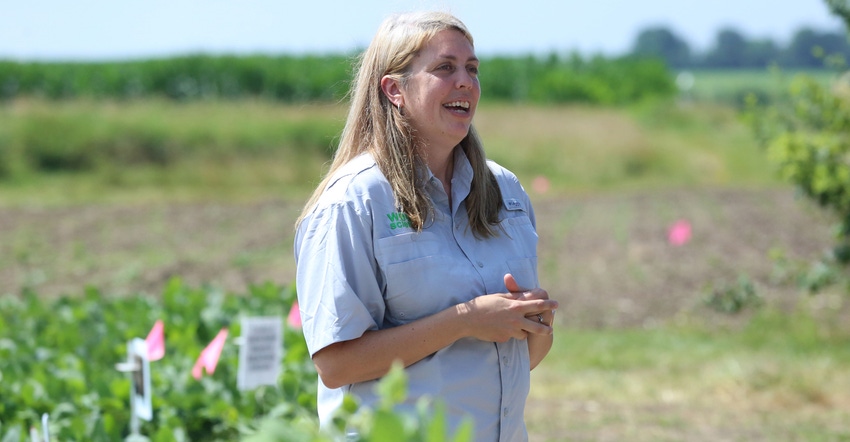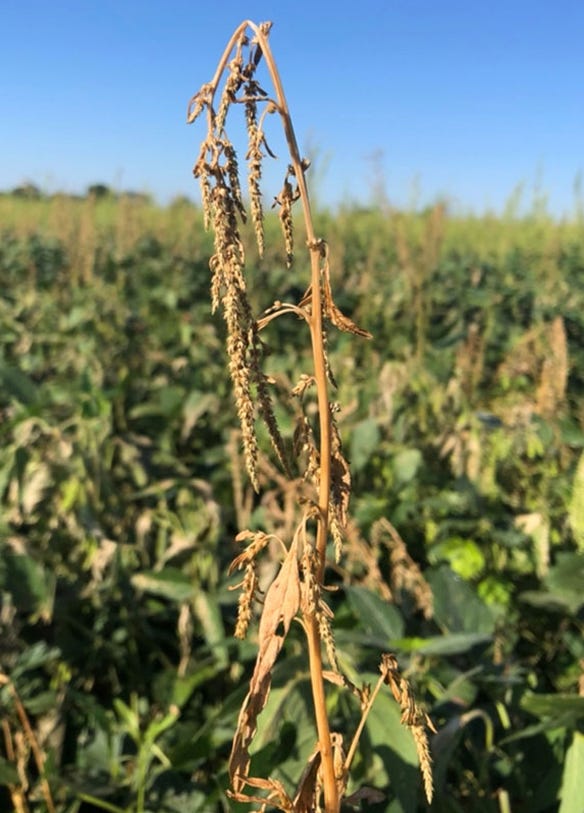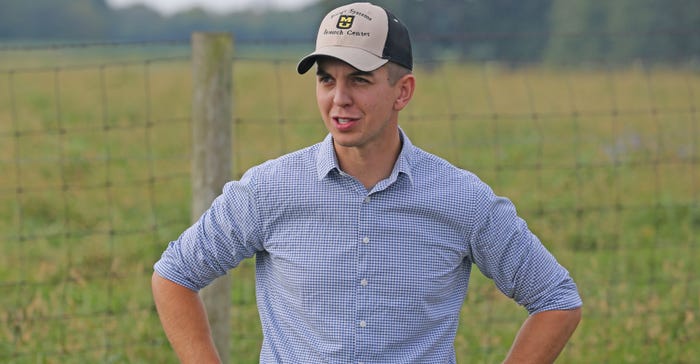
Two University of Missouri Extension events in July offer farmers a chance to learn the latest crop and livestock management practices.
The Mizzou Pest Management Field Day will be July 7 at the MU Bradford Research Farm. Sam Polly, MU Extension state director of pesticide safety education, will discuss the protection of endangered species.
“Recent changes in U.S. EPA policy have made endangered species one of the hottest topics in agriculture,” Polly said in a news release. “Knowing these changes and some of the species at risk is paramount to keeping your operation, and our industry at large, moving forward.”
Polly will highlight the importance of beneficial management practices such as vegetative barriers to comply with federal regulations and new labeling requirements.
Farmers will hear about pest predictions for 2022, including management of late-season stinkbugs in soybeans.
Other research to be presented includes:
new herbicide products
herbicide-resistant weed update
weed electrocution research
soybean cyst nematode research
tar spot of corn
foliar fungicide applications in soybeans
Missouri Strip Trial Program
Hands-on opportunities
A drone demonstration on pesticide applications and spreading cover crop seeds will offer farmers an up-close look at this latest use of technology in crop management.
MU Plant Diagnostic Clinic representatives will discuss new and common corn and soybean diseases farmers may see in the state. Attendees can bring crop samples to the field day for diagnosis.
After lunch, attendees can walk plots showcasing a variety of herbicide treatments and weed management programs for corn and soybean. Plots will be clearly labeled and mapped for easy viewing.

DEAD WEEDS: Waterhemp is seen three days after electrocution. Weed electrocution research will be discussed July 7 at the Mizzou Pest Management Field Day at the MU Bradford Research Farm near Columbia.
A $20 registration fee helps cover costs associated with lunch and refreshments. The site is located about 8 miles east of Columbia. Registration begins at 7:30 a.m. with opening remarks soon after 8 a.m. Tour wagons will depart by 8:30 a.m.
To register, email Kevin Bradley at [email protected] by June 30. Continuing education units are available for certified crop advisers.
Cattle reproduction focus of meeting
MU Extension will host a workshop on the management of reproduction in beef cattle to help producers learn about management practices to improve profits.
MU Extension beef reproduction specialist Jordan Thomas and beef nutrition specialist Eric Bailey will lead the event July 7-8 at North Central Missouri College’s Barton campus in Trenton.
The two will discuss nutrition, genetics, health and management, focusing on beef reproduction as a system that requires planning and adaptive management.

CATTLE CONVERSATIONS: MU Extension beef reproduction specialist Jordan Thomas will discuss a whole system approach to beef reproduction — which includes genetics, nutrition and cow health — during a July 7-8 beef reproduction meeting at North Central Missouri College’s Barton campus in Trenton.
Thomas says that by managing reproduction with a multiyear perspective and taking a whole system approach, cow-calf producers can manage both proactively and reactively to achieve profitable reproductive outcomes.
He notes that reproductive technologies such as synchronization and artificial insemination will be covered, but the emphasis during the event will be on “yearlong management of the overall system.”
Topics at the beef reproductive event include:
ultra-short calving season in the cow herd
managing cow body condition economically
heifer selection and building a profitable heifer development enterprise
maintaining cows in positive energy balance in variable forage conditions
minimizing effects of stress on reproduction
bull management in and out of season
All participants receive a copy of the manual Whole System Management of Beef Cattle Reproduction, released in 2021 by MU Extension.
To register, visit cvent.com/d/6kq4cx or contact Eric Bailey at 573-884-7873 or [email protected].
University of Missouri Extension contributed to this article.
About the Author(s)
You May Also Like






